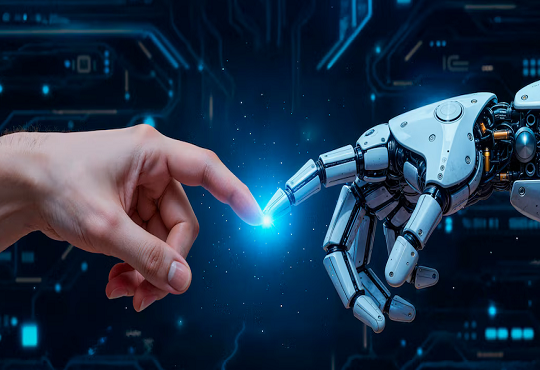
Digitization - For a Sustainable Future in the Construction Industry
Kamal Pahuja, VP - Mining and Construction, Metso
 Infrastructure needs of our country are well known as speed of buildup of our infra has not kept pace with the demand. If we look at the simple statistics about the road sector; our National Highways are only less than 2 percent of our total road network and carry 40 percent of total traffic and on top of that average pace of growth in vehicular population is over 10 percent for last five years.
Infrastructure needs of our country are well known as speed of buildup of our infra has not kept pace with the demand. If we look at the simple statistics about the road sector; our National Highways are only less than 2 percent of our total road network and carry 40 percent of total traffic and on top of that average pace of growth in vehicular population is over 10 percent for last five years.
The demand to create infrastructure is at an all-time high; the rising population and raise in expending income push speedier development in the infrastructure sector. As per recent announcement, Government plans to build over 83,000 Kilometers with outlay of approx. 100 Billion dollars.
The pertinent question in every one’s mind is whether the Industry is ready today to deliver on these expectations. The construction industry has grown but for some reasons the pace of innovation and technological advancement in this industry is rather slow.
One of the way to respond to the high growth demand is to accelerate the pace of digitalization in the construction industry.
Technology has changed the way we move; we think and even how we do our day-to-day jobs. Digitalization has taken over almost all the fields and now we have a world which is operating, connecting and moving ahead digitally in some way or the other.
We see an apparent technology dominance established early in the B2C segments which have not only provided more power to the customers but has also made their assets and time more efficient. Automobiles industry was one of the first to get on the train. The cars we drive today, not only are automated with smart technology to simply decipher efficient usage, but also provide critical analysis around maintenance scheduling. As a customer, we all have seen lot of value in that and feel more satisfied with the value we get for our money.
Similarly, I see great need of digitalization in the construction industry too. The sector has not been using the power of the IT intervention as much as the other industries are. Being a resource intensive industry, there is a huge scope for all players in the periphery to drive big levels of resource efficiency through these mediums.
The infrastructure developers deal with a lot of assets (heavy) and these are sourced from various technology manufacturers, like earth moving, crushing, drilling, batching plants,etc which may or may not have some amount of digital advancements to their equipment. The key challenge in most of these projects is the uptime of all the assets. A slight deterioration from the standard functioning of one asset can mean quite a setback for the operations and the implications are humongous in terms of costs and delivery schedules. The key here is to make the machines more intelligent and our operations smarter.
For instance, if machines are equipped with intelligent sensors and automation, then they could talk to each other. Higher automation means that it is possible to have remote diagnostics of machines, predictive analysis of performance and have real time data on operations, performance and cost. All this would mean high level of efficiency for various stakeholders be it manufacturers, buyers or users of machines.
For the equipment manufacturers availability of real time data from various sites can help them to work quickly on improvements and innovation. They can do more efficient planning on parts and service, focus on preventive maintenance than being reactive and improve customer satisfaction.
For the machines users, it means issues related to maintenance and parts supply could be solved quickly as it will be possible to predict the life of different parts of machine and stock them. It will help in avoiding breakdowns and spikes in cost and finish the projects on time or ahead of time. It also leads to efficient decision making for even the most logistically challenging sites. The automation of these systems also brings precision and consistency in operations and leads to stable product quality.
The buyers can get more info in real time, such as, what is the total installed base, performance of different assets and life cycle cost analysis, etc. The access to more meaningful data would help them make the right decisions ahead of time.
All this means efficient utilization of our assets and elimination of wastages. It would help in cutting down the project delivery period as breakdown of machines will be reduced and availability will go up. The benefits of early completion are exponential for the Industry as well as country.
However, the overall steps taken till date in terms of digitalization in this sector are still very nascent and there is a great opportunity for improvements and innovations
We need more intelligent machines that work for us, and, also speak back to us.
CIO Viewpoint
Why Foolproof Facial Recognition Is Key Against...
By Joseph Sudheer Thumma, Global CEO & MD, Magellanic Cloud
National Technology Day 2025: Powering Progress...
By CIOTech Outlook Team
Aligning IT Roadmap with Business Objectives: A...
By Subhash singh Punjabi, CISO & Head Enterprise Architecture, Deepak Fertilisers & Petrochemicals Corporation Ltd
CXO Insights
Sustainable Building Practices Shaping the...
By Kripadyuti Sarkar, Group CIO, Ambuja Neotia
Building Information Modeling (BIM) in the...
By Hetal Presswala, Chief Information Security Officer, Kalpatharu Projects International ltd
6 Transformative Impacts of Technology on Real...




.jpg)




